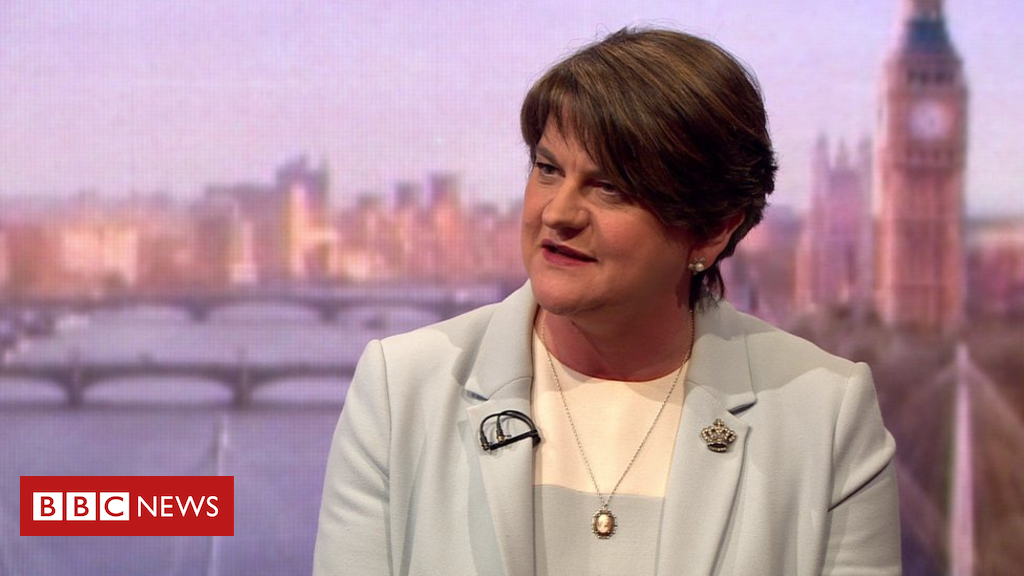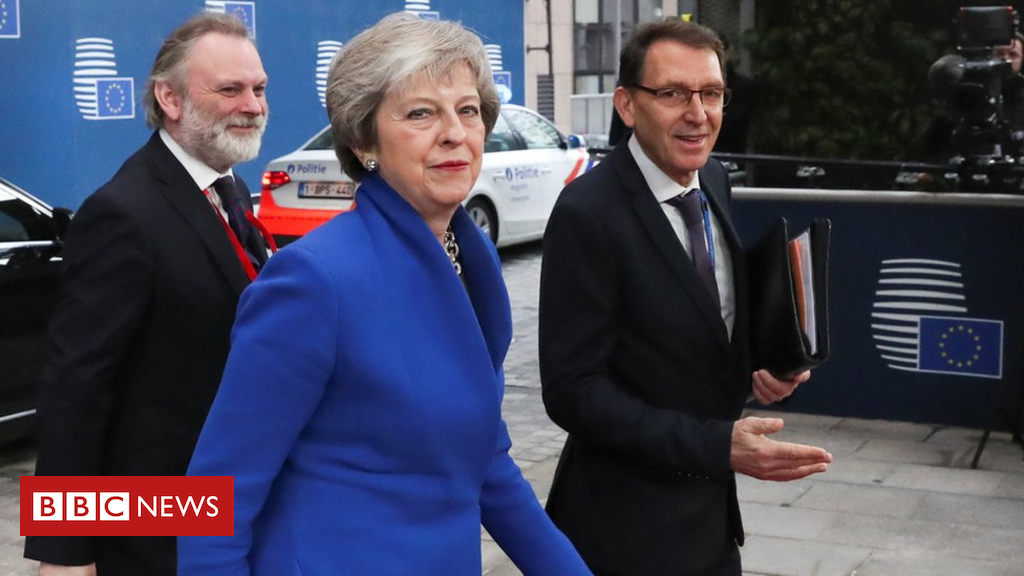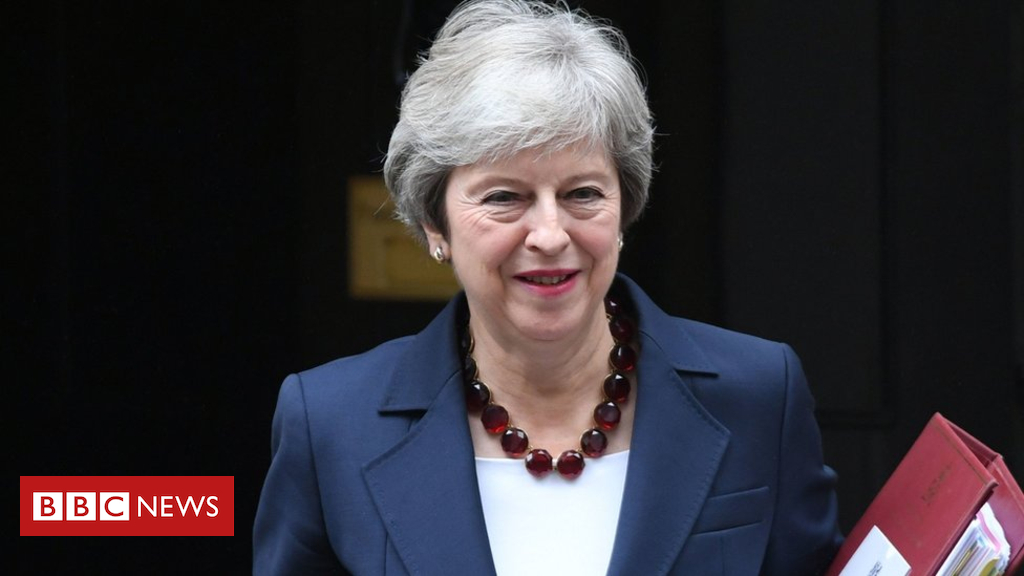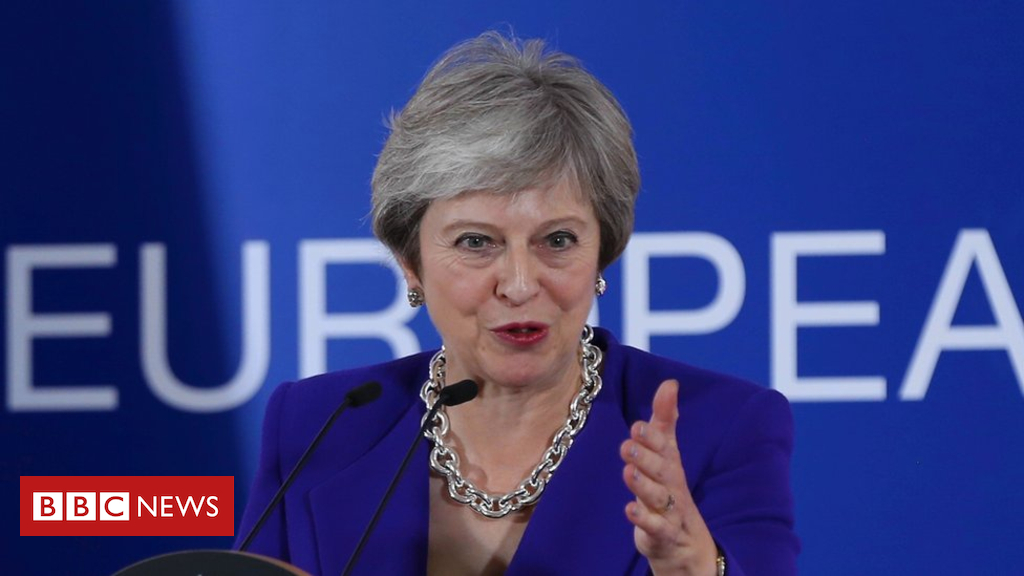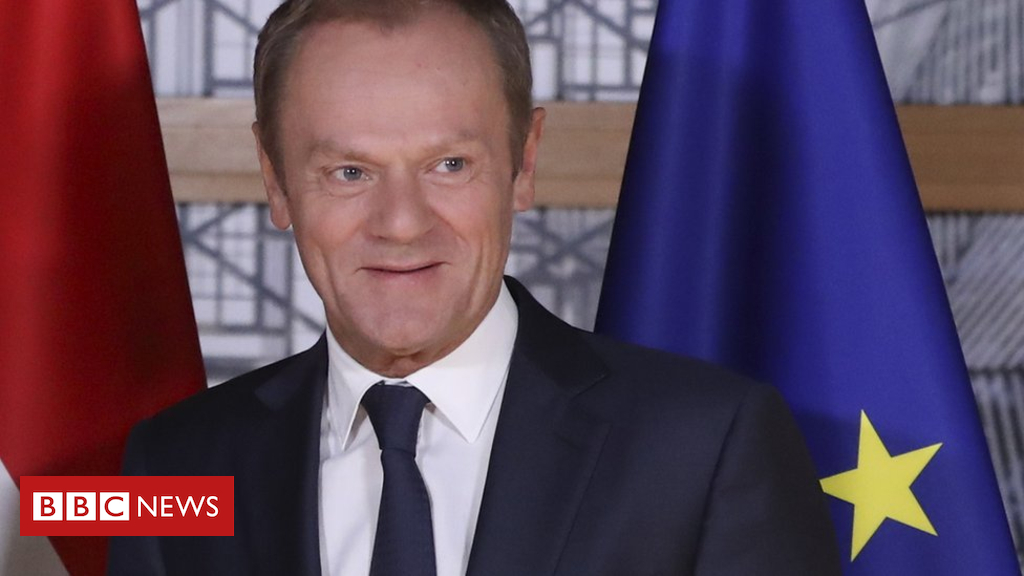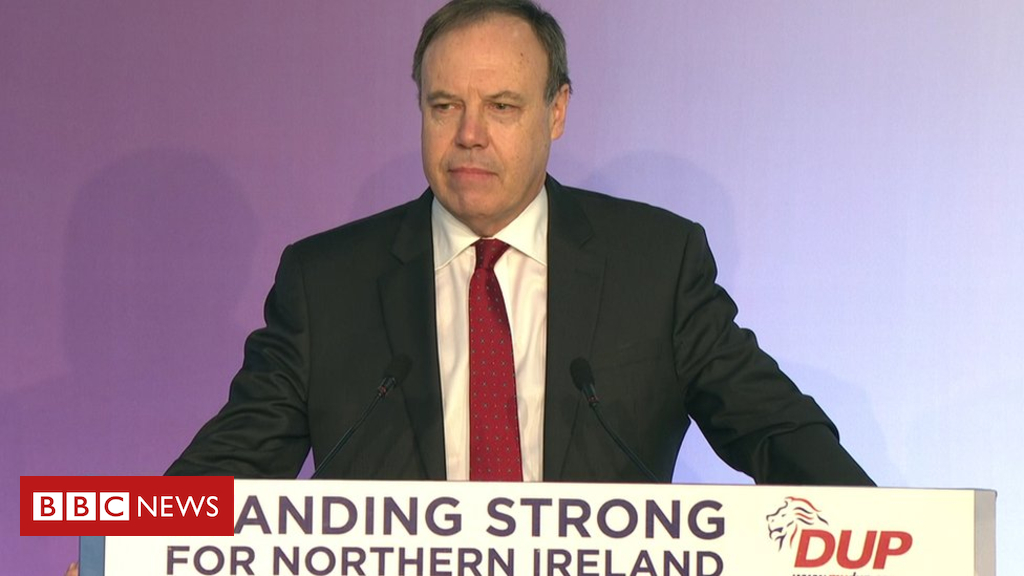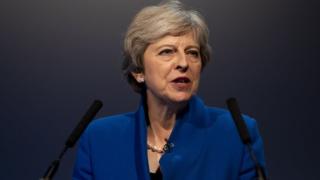 Image copyright EPA
Image copyright EPA
Conservative MPs opposed to Theresa May’s Brexit plan have met to discuss how and when they could force her to stand down as prime minister.
Around 50 members of the European Research Group (ERG) openly discussed “how best you game the leadership election rules,” a source said.
Later, the Eurosceptic MPs are to unveil what they say is a solution to the Northern Ireland border issue.
They have been under pressure to come up with alternative Brexit plans.
‘She has to go’
One MP present at the meeting on Tuesday evening said the group considered “possible scenarios over the Autumn” depending on the deal the prime minister did or didn’t get with the EU, BBC political correspondent Jonathan Blake said.
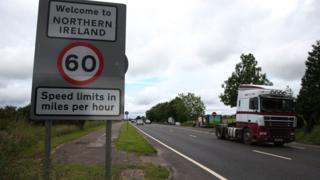 Image copyright PA
Image copyright PA
The government says its plan for “harmonisation” with EU trade rules and a “combined customs territory” with the EU will avoid friction at the border.
It says Parliament will be able to choose to diverge from the EU rules, “recognising that this would have consequences”.
But critics say this would deny the UK the trade freedom it needs.
The government’s Chequers plan has not yet been accepted by the EU. Both sides have also agreed on the need for a “backstop” to avoid new physical infrastructure on the border, irrespective of the final deal that is negotiated.
Some Brexiteers have claimed the border issue is being “exploited” by the EU and Remain supporters to keep the UK closely tied to Brussels.
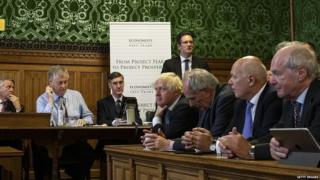 Image copyright Getty Images Image caption Boris Johnson was among leading Tory MPs at an event discussing a “clean break”
Image copyright Getty Images Image caption Boris Johnson was among leading Tory MPs at an event discussing a “clean break”
Speaking at an event on Tuesday, Mr Rees-Mogg said the border was the only thing standing in the way of the UK negotiating a free trade deal like the EU has with Canada.
He added: “It is possible to move very swiftly to a Canada-plus style deal as long as we can come up with a scheme, which I think we have got for tomorrow, on how do you ensure a solution to the Northern Ireland problem that any reasonable person would accept?”
Prime Minister Theresa May has said a free trade deal would not avoid a hard border and that this can only be achieved with “friction-free movement of goods” with no customs or regulatory checks.

